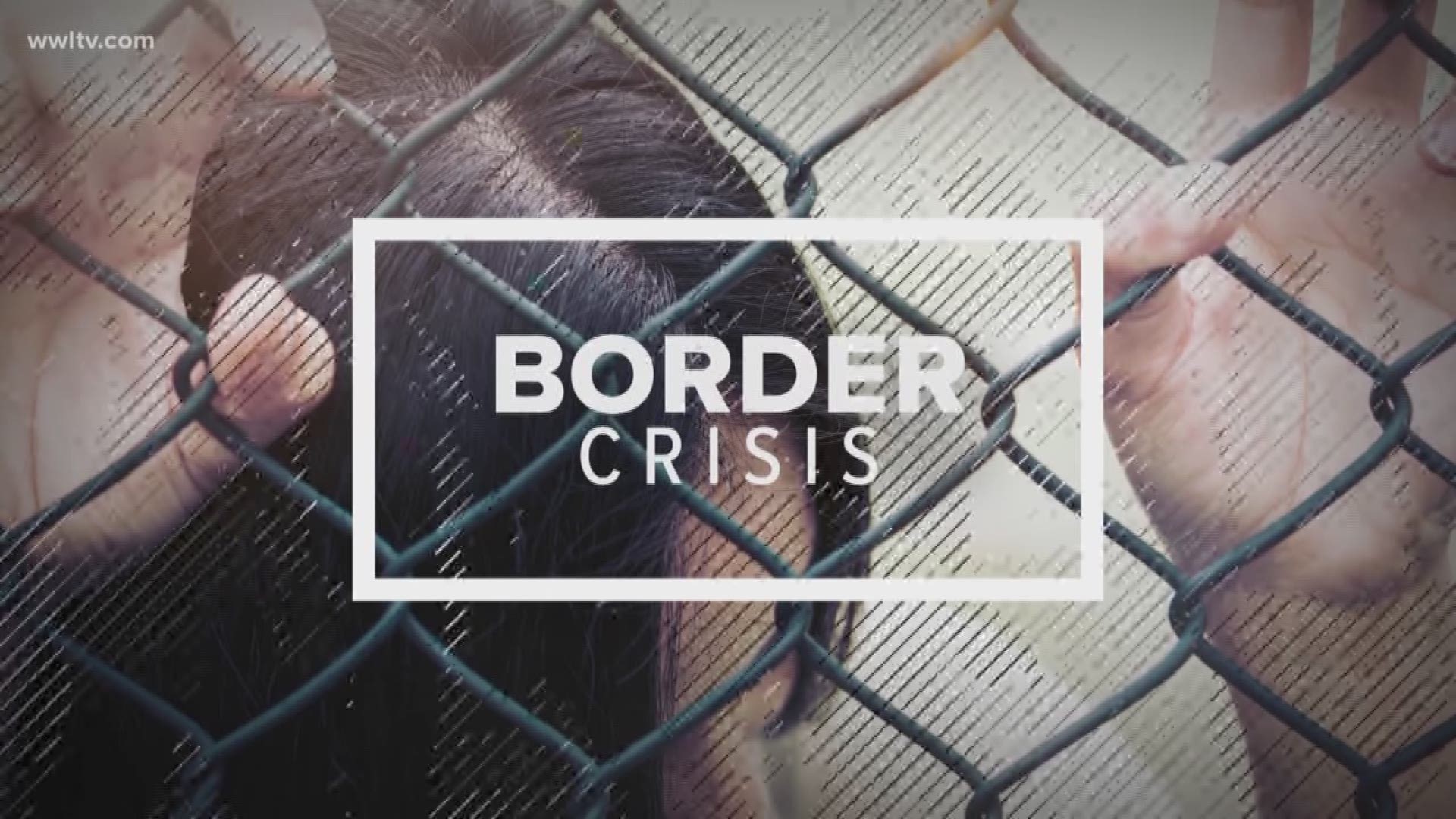President Donald Trump’s “zero tolerance” policies on immigration have spurred a contentious and controversial debate across the country. Because of that, there is plenty of misinformation about the immigration rules and laws floating around the internet.
While the President is expected to meet with House Republicans Tuesday, we wanted to separate fact from fiction with Tulane University Law professor Laila Hlass.
Her interview with WWL-TV’s Eric Paulsen is below:
Q: First of all, when the stuff started hitting the fan with this one, President Trump was on the north lawn having an impromptu press conference with reporters. He said it was a Democrat law that was forcing him into this. He said he hates separating the children, but he has no choice.
A: Yeah that is simply not true. This is a decision by the Trump administration to have “zero tolerance” and criminally prosecuting parents that enter without permission. So, this was a decision by Attorney General Jeff Sessions. He made it very clear they want to prosecute every parent. And what that means is that, the parents are put into a federal jail, they’re separated from their children, instead of letting immigration system handle these cases together.
Q: This has been done before. What makes this different?
A: This is very different in scope. In the last six weeks, we have seen almost 2,000 children ripped away from their parents. That’s almost 45 children a day. The human cost is pretty devastating. We heard the cries of children. Its more than, I think, 100 children under the age of four taken away from their parents. So, kind of having a zero tolerance, every single parent who enters without permission, no matter if they are seeking asylum, no matter how strong their claim might be, and criminally prosecuting them instead of letting them work their way through the immigration system.
Q. What does the law actually say should be done in cases like this?
A: The law doesn’t speak to this specifically.
Q: So there is more discretion?
A: There is more discretion. And that is why we didn’t have this situation before at such a large scale. There is a set of criminal laws and there’s the immigration law system. Under asylum law, you can seek asylum once you enter into a country, and it doesn’t matter the way in which you enter. In fact, a large number of people who apply for asylum never had a visa to come here. They didn’t immediately present themselves at a checkpoint when they arrived. They simply come as fast as they can, because they are fleeing violence and persecution. That’s how the law was written.
Q: In this case, because it is so “no tolerance,” everybody, including those seeking asylum from horrific conditions wherever they came from, are being prosecuted.
A: That’s exactly true. They’re making the decision to criminally prosecute people before accessing whether they have a credible fear, before letting the immigration system decide whether these are real claims of asylum. The immigration system can decide this. We have laws on our books that would allow families to stay together while their cases are processed together.
Q: What happens if this continues, if no comprehensive immigration is passed? What happens if this remains in effect?
A: It seems that there is a standoff right now. Both Republicans and Democrats are actually calling to end this practice.
Q: You had all living first ladies come out and condemn it.
A: Exactly. A lot of people are saying, “this is not who we are as a country. We don’t want to take away children from their parents. We don’t need to do this.” The first decision is that of the Trump Administration. Do they want to double down and continue with this practice? Or will they change route? Because they can change route. We have laws on the books that allow them to not criminally prosecute every single case of parent coming here.
Q: It depends on how many people he can keep in his own party with him on this.
A: There’s going to be a lot of political pressure. There are two immigration bills that are going to be put forward this week. It might be part of this political debate that goes on this week.

